Olympics 2016: Rio de Janeiro undergoing intense transformation with one year to go until Games
RIO de Janeiro is undergoing an intense transformation as it prepares to host the 2016 Olympic Games, and getting there will be anything but plain sailing.
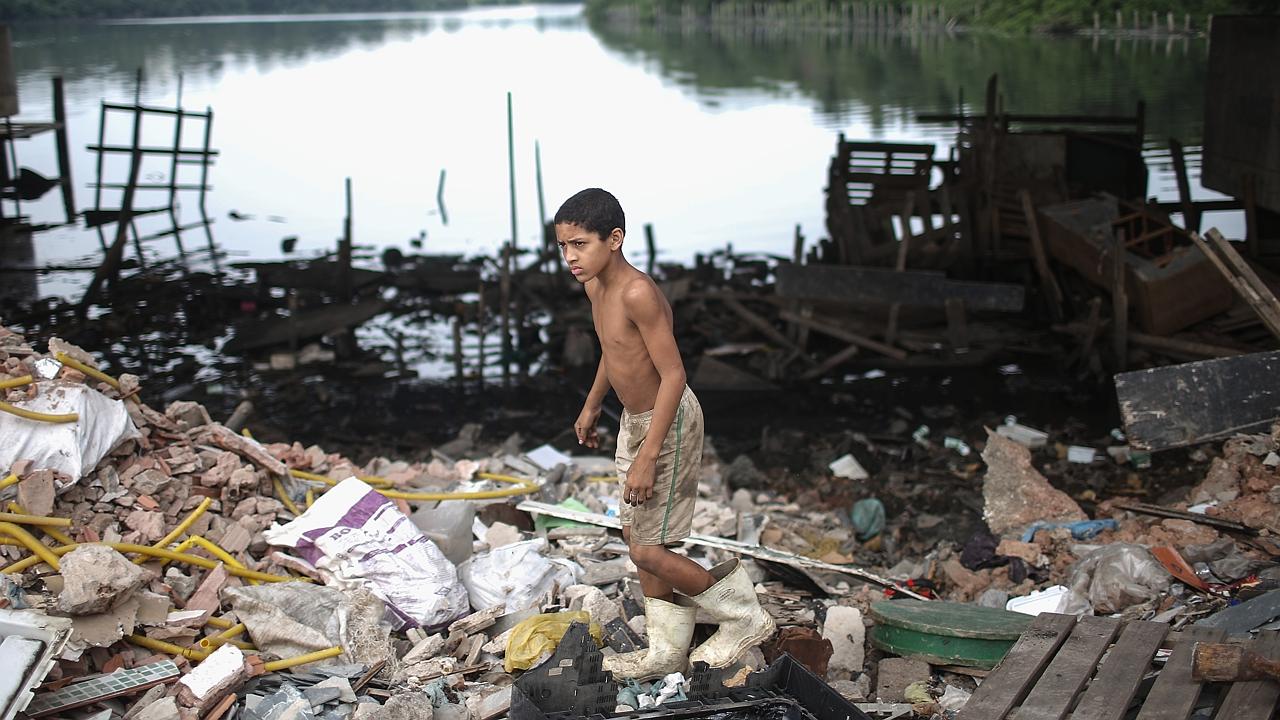
A PLAQUE at Rio de Janeiro’s international airport cites the words of bossa nova legend Tom Jobim in his 1962 ode to the city, ‘Samba de Aviao’.
“I see Rio de Janeiro … your sea and beaches have no end,” go the lyrics, which Jobim penned while looking down on his birthplace from an aeroplane window.
Those arriving in the 2016 Olympic host city today are perhaps just as likely to be struck by the endless array of construction sites and traffic-choked roads as the fabled coastline.
One year out from the first Olympics in South America, Rio de Janeiro is undergoing an intense transformation.
In the once-derelict port district, the first gleaming skyscrapers have begun to jut into the skyline. A few kilometres further east along the bay, workers are busily carving out a new promenade alongside the Marina da Gloria sailing venue.
To the south, labourers are working around the clock to complete a subway line from Ipanema to Barra da Tijuca, where cranes tower over Olympic Park and the Olympic village. Further west, excavators and scaffolding fill the Deodoro Olympic precinct, the Games’ second-largest venue cluster.
GOLDEN HOPES: AUSTRALIA’S TOP 10 MEDAL CHANCES AT RIO 2016
READY FOR GLORY: RISING AUSSIE STARS SET TO SHINE AT RIO 2016
KEY DATES: EVERYTHING YOU NEED KNOW ABOUT THE 2016 RIO OLYMPICS
Some of the city’s busiest roads are being dug up to accommodate new express bus lanes and tram links. All the while Cariocas — as Rio de Janeiro residents are known — are spending more time than ever stuck in traffic, many wondering if it will all be worth it.
“The city has become like a giant car park,” quips taxi driver Claudio Andrade, who despite the traffic standstill cheerfully taps his hands on the steering wheel along to a samba beat.
“Dealing with this is part of the job. But I hope we will see the benefits soon because we have had to suffer a lot to get to this point.”
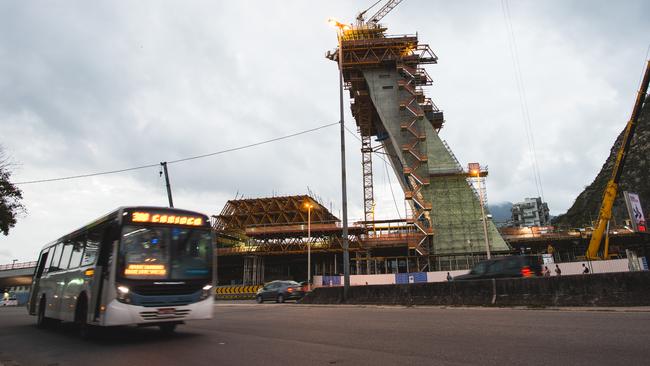
In April 2014, Australia’s International Olympic Committee vice-president John Coates made international headlines by describing Rio’s Games preparations as the worst he had seen.
But organisers are now adamant they are on track to deliver their promises on time and within budget.
“We are exactly where we would expect to be,” Rio 2016 organising committee deputy CEO Leonardo Gryner told News Corp Australia this week.
“About a year ago we set up all the dates with the government for the delivery of venues and infrastructure works and they are delivering everything exactly on time.”
That is not to say that Rio 2016 organisers have overcome all of their problems. Many and varied challenges remain.
Earlier this year, the International Sailing Federation (ISAF) warned that Guanabara Bay could be stripped of hosting Olympic events if action wasn’t taken to clean its filthy waters.
Government officials have since admitted they will be unable to fulfil a promise to treat 80% of sewage flowing into the bay ahead of the Games. According to Gryner, the figure is more likely to be about 60%.
He said large nets have been placed in strategic parts of the bay to trap rubbish while a fleet of special boats are being deployed to scoop garbage from the water’s surface.
“It’s a huge bay and we have challenges that will take 10 years or more to fix,” Gryner said.
“The water comes from 11 rivers that are part of 16 different cities around the bay. The work being implemented will leave a legacy for the city in terms of improving water conditions in the bay.”
According to Gryner, there will be no health risk to athletes because the sailing course lies in a channel of deeper water whose currents flow from the open sea.
“If you go now to any of the locations where we will host races, we have water that is at good levels according to any international standards,” Gryner said.
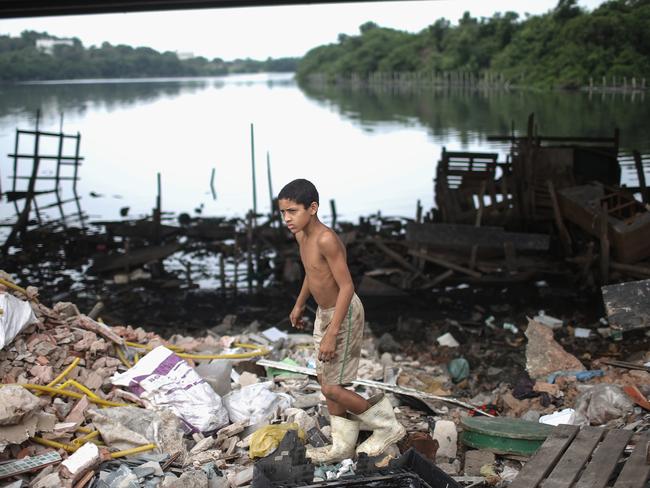
Almost as controversial as Guanabara Bay has been the Olympic golf course, which is hemmed along a nature reserve.
The Occupy Golf movement says the course threatens native wildlife and has accused the city’s mayor, Eduardo Paes, of awarding its development contract to one of his political campaign sponsors. Paes has vigorously denied the allegations.
There are logistic and legal concerns, too.
Contracts to build temporary structures for mountain bike riding, BMX, equestrian, volleyball, triathlon and the swimming marathon are yet to be signed while Rio’s electricity utility Light is still finalising a tender for power supply to venues.
At the Lagoa rowing and canoeing venue, work on a temporary floating stand was last week halted after a judge said the builder had not provided the correct environmental safety guarantees.
But those issues seem almost trivial when compared to the drama unfolding at the Vila Autodromo favela.
Located within metres of the Olympic Park complex, the crumbling shanty town stands testament to the gaping chasm that divides the city’s social classes.
Vila Autodromo’s population has shrunk by more than two-thirds since the government began offering newly built homes and financial compensation for residents to leave.
But a steadfast group of about 500 people have refused to go.
One of those is Maria da Penha, 50, whose voice is barely audible above the growl of a bulldozer that is levelling the home of a former neighbour.
Penha says she has turned down an offer of 2.3 million reais (about AU$940,000) to leave her 300m2 property, where she has lived with her husband, daughter and mother for the past 23 years.
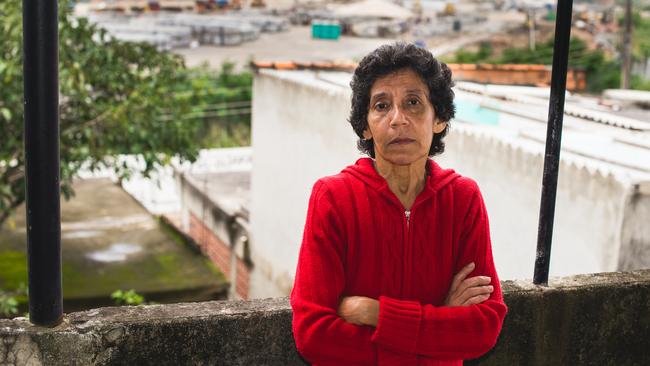
“I don’t want the money. I want to keep my home,” Penha says. “Happiness is something you can’t buy and it’s my right to stay here.”
The community’s resistance last month led to violent clashes with authorities. Penha said she suffered facial cuts and bruises while forming a human chain to stop municipal officers evicting a neighbour.
Francisco Marinho, 54, is another who has vowed to stay, despite intermittent power supply and a lack of clean water.
“Brazil is in an economic crisis. The government should be spending money on the country’s health and education systems, which are pitiful,” he says. “Now they are forcing us to leave our homes. The Olympics have only brought shame to Brazil.”
Gryner defended the actions of the government, denying a policy of forced evictions to allow for redevelopment on prime real estate.
“Those who decided to move are enjoying the new housing and the ones that decided to stay will stay,” he said, adding that a new transport hub would be built to serve Vila Autodromo’s residents.
Marinho and Penha say they will not watch the Olympics, but officials affirm they are part of a minority. A recent survey by the local organising committee showed the Games had 67% of support from Rio’s inhabitants.
There has been little of the ill-feeling that surrounded the build-up to last year’s World Cup when mass protests against the misuse of public funds swept Brazil’s largest cities.
According to Gryner, a major reason for this is the fact more than 50% of the expected AU$16.4 billion Games budget is coming from the private sector. In addition, he says, residents are already seeing the benefits of so-called legacy projects like the Port redevelopment and improved public transport.
“I think it will be worth all of the time and money,” says our taxi driver, Andrade, as we sit idle in the peak-hour gridlock.
“Having the Olympics in Rio is a dream come true. We will be the centre of the world’s attention and that makes me proud. I hope we can put on a good show.”
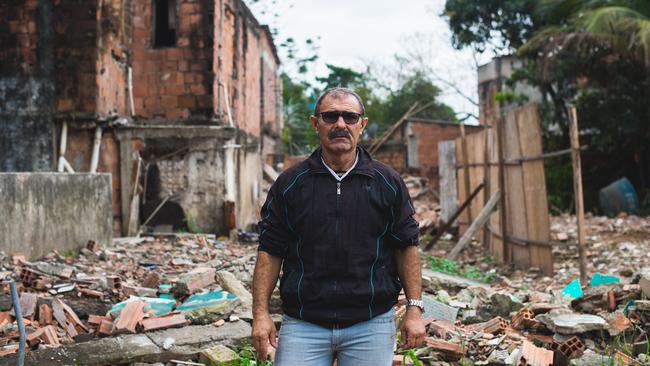
TOP 5 CHALLENGES FACING OLYMPICS ORGANISERS
1 Polluted water at Guanabara Bay
The local government has admitted it will not be able to deliver on a promise to treat 80% of raw sewage flowing into Guanabara bay, increasing doubts over the venue’s suitability to host Olympic sailing events. Parts of the bay remain strewn with waste and rubbish, which continue to kill scores of fish and pose a risk to humans, according to health experts.
2 Transport
Despite encouraging progress on the development of new express bus lanes and a tram service, the city is in a race against time to finish the subway extension from Ipanema to Barra da Tijuca. The project is seen as the most challenging of Rio’s Olympic urban mobility works, running under a canal and through mountains along its 16km stretch.
3 Venue construction/logistics
The government and organisers have yet to sign contracts for the construction of temporary venues for mountain biking, BMX, equestrian, beach volleyball and the swimming marathon. In addition, tenders are still being finalised to provide power supply to Olympic venues. Similar contracts for London 2012 were signed 20 months before the Games began.
4 Protest threat
The threat of mass protests has been reduced as Rio’s residents appear to have tired of the often violent anti-government rallies that marked the lead-up to last year’s World Cup. But nobody saw those protests coming and with President Dilma Rousseff’s approval rating having reportedly dipped below 10% amid a deepening economic crisis, a repeat of the unrest cannot be ruled out.
5 Security operation
It is doubtful any previous Olympic host city has faced security issues on the level that Rio encounters on a daily basis. According to online database Numbeo, the city reported 4500 murders in 2014, a rate of 35 per 100,000 inhabitants. The government announced in May it would make available its complete pool of 13,000 national security force soldiers during the Olympics and Paralympics. Local media has reported that the country’s army will occupy the city’s most dangerous shanty towns, known as favelas, as part of the security operation.



